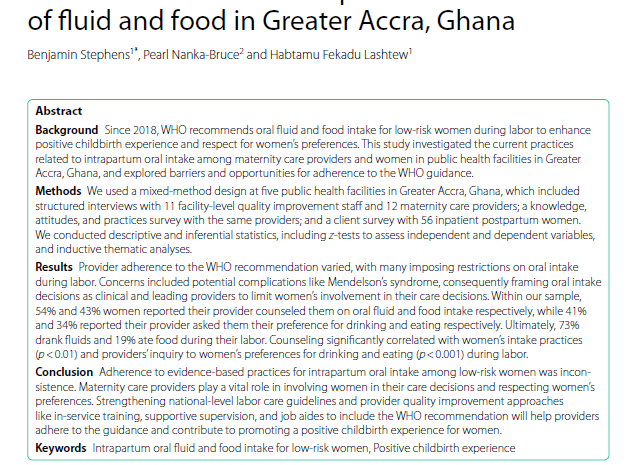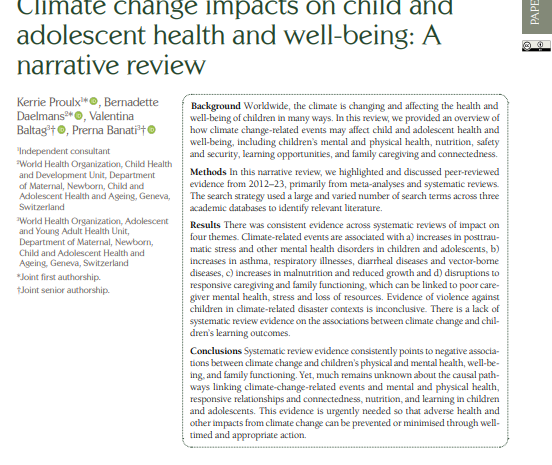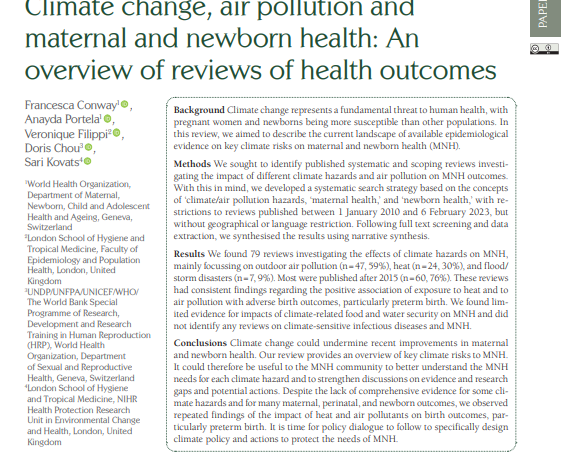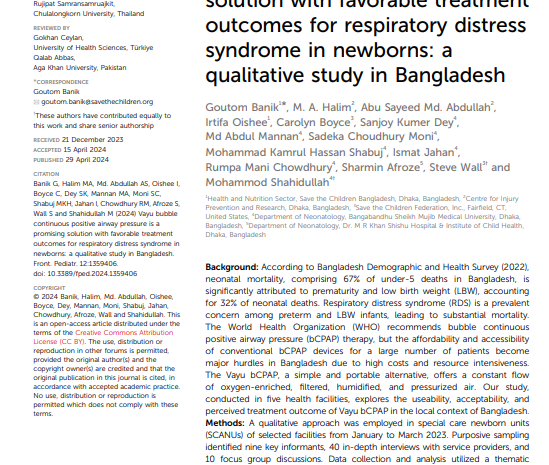Journal Article
May 24, 2024
Adolescent | Air Quality
Climate change impacts on health across the life course
Climate change directly impacts health, such as the effects of extreme or sustained heat on susceptible sub-populations, including pregnant women, newborns, infants, children, vulnerable adults and older persons. It can also indirectly negatively affect health through multiple pathways by negatively affecting the underlying determinants of health.
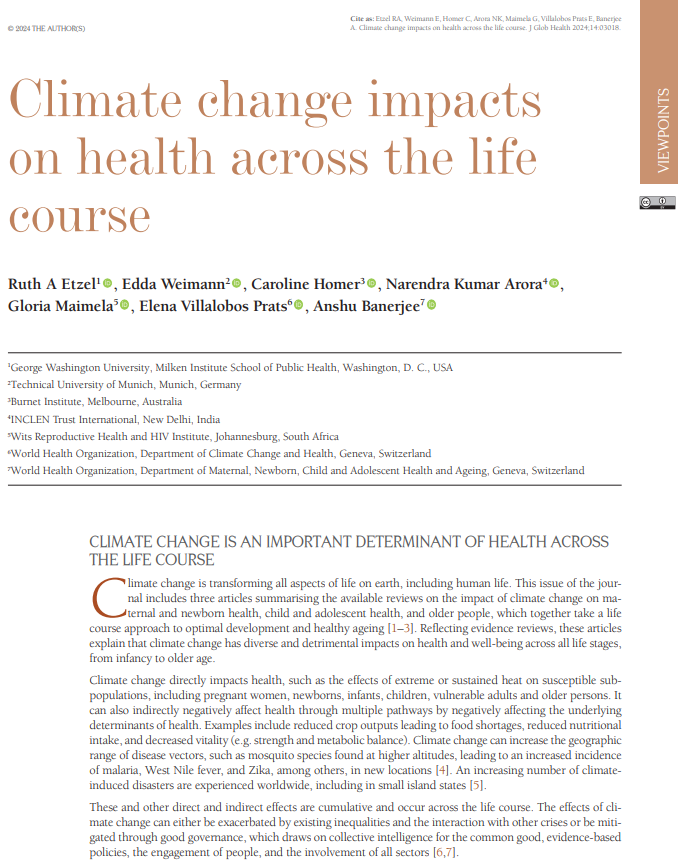
Authors
Ruth A Etzel
Edda Weimann
Caroline Homer
Narendra Kumar Arora
Gloria Maimela
Elena Villalobos Prats
Anshu Banerjee
Related Topics
AdolescentAir QualityChildClimateComplicationsDroughtEpidemicFloodHeatInfantsMaternalNatural DisasterPollutionResilienceWaterOrganizations
World Health OrganizationSubscribe to our Newsletter
Share
CLIMATE CHANGE IS AN IMPORTANT DETERMINANT OF HEALTH ACROSS THE LIFE COURSE
Climate change is transforming all aspects of life on earth, including human life. This issue of the journal includes three articles summarising the available reviews on the impact of climate change on maternal and newborn health, child and adolescent health, and older people, which together take a life course approach to optimal development and healthy ageing [1–3]. Reflecting evidence reviews, these articles explain that climate change has diverse and detrimental impacts on health and well-being across all life stages, from infancy to older age.
Climate change directly impacts health, such as the effects of extreme or sustained heat on susceptible sub-populations, including pregnant women, newborns, infants, children, vulnerable adults and older persons. It can also indirectly negatively affect health through multiple pathways by negatively affecting the underlying determinants of health. Examples include reduced crop outputs leading to food shortages, reduced nutritional intake, and decreased vitality (e.g. strength and metabolic balance). Climate change can increase the geographic range of disease vectors, such as mosquito species found at higher altitudes, leading to an increased incidence of malaria, West Nile fever, and Zika, among others, in new locations [4]. An increasing number of climate-induced disasters are experienced worldwide, including in small island states [5].
These and other direct and indirect effects are cumulative and occur across the life course. The effects of climate change can either be exacerbated by existing inequalities and the interaction with other crises or be mitigated through good governance, which draws on collective intelligence for the common good, evidence-based policies, the engagement of people, and the involvement of all sectors [6,7].
Good governance and health in all policies draw on the fundamental principle that all people have the right to health as part of human rights [8]. Moreover, all governments have committed themselves to achieving the Sustainable Development Goals [9], and most have signed the Paris Agreement [10]. These international policy instruments broadly underline that a) everyone’s basic needs, such as food, shelter and health services, must be met without discrimination, b) climate change and health are inextricably linked, and impacts are not confined to national borders, and c) importantly, policy choices can make a difference to anticipate, mitigate and adapt to climate change, if implemented at national, regional and global levels. Furthermore, evidence indicates that policies and actions will also need to address the social, economic, commercial and political determinants of climate change [11,12].
Related Resources
See All ResourcesJournal Article
Journal Article
May 24, 2024
Adolescent | Air Quality
Journal Article
May 24, 2024
Air Quality | Climate
Journal Article
